‘I’ve been through some gnarly stuff’: Sad reason Osher Gunsberg’s marriage almost ended
The former Bachelor host has had a long battle with chronic pain. Now, Osher Günsberg reveals how illness almost cost him his family.
Celebrity Life
Don't miss out on the headlines from Celebrity Life. Followed categories will be added to My News.
As the host of some of Australia’s biggest shows, Osher Günsberg has been a familiar face on our TV screens for the past decade.
So when The Bachelor Australia and The Masked Singer Australia were shuttered this year, viewers were left wondering what he’d do next.
In a conversation with the Stellar podcast Something To Talk About, the 50-year-old opens up about the importance of being prepared for change, how his own chronic pain influenced his new documentary, and what might draw him back to a TV hosting role.
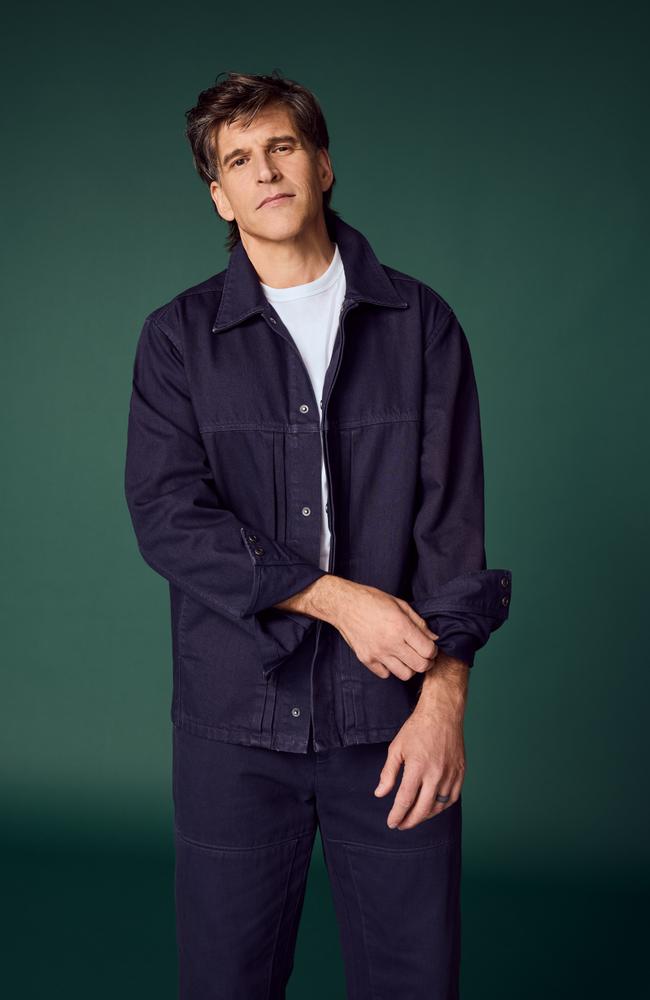
In 30 years of working in broadcasting, you’ve had inevitable highs and lows. One of these periods was back in May this year when it was announced that Network 10’s Australian versions of The Bachelor and The Masked Singer, both of which you hosted, were not returning to screens. What was the day of the announcement like for you?
I knew [the announcement] was happening six months earlier. My former manager – he’s passed away now – he used to say, “You may book that big show but one day that show is going to get cancelled, because no matter what – unless you’re hosting the six o’clock news – that format one day people aren’t going to watch it anymore, so what are you going to do then? You’d better be ready for that day.” Now, I’ve been un-ready for that day [in the past] – I know what that’s like, to be not prepared. I never wanted to do that again … I was a single man when I started making [The Bachelor in 2013], and then I had a girlfriend [Audrey Griffen] who had a kid [Georgia, now 20], then I had a fiance who had a kid, then I had a stepdaughter and a wife, then I had a wife and a stepdaughter and a son [Wolfgang, now five] – so the plan does need to change with you as you go. But you always need to think: OK, look ahead. What’s going on?
Listen to Osher Günsberg on the new episode of Something To Talk About:
If you give yourself that space, and take the time and make the sacrifices you need to make to put that cash aside, that runway aside, what you buy is something you can’t afford any other time in the world. You’re buying something completely invaluable – the time to make a choice; a time that isn’t driven by any kind of desperation. I’ve been in that position. I’ve taken jobs for money. I’ve been with no cash flow at all and been like, oh crikey, what am I going to do now? And nobody likes to be in that position. It’s not easy, and nobody is thrilled about it, but it’s a part of the job that I’ve chosen and that’s OK. I don’t know how to do anything else. So this is it.
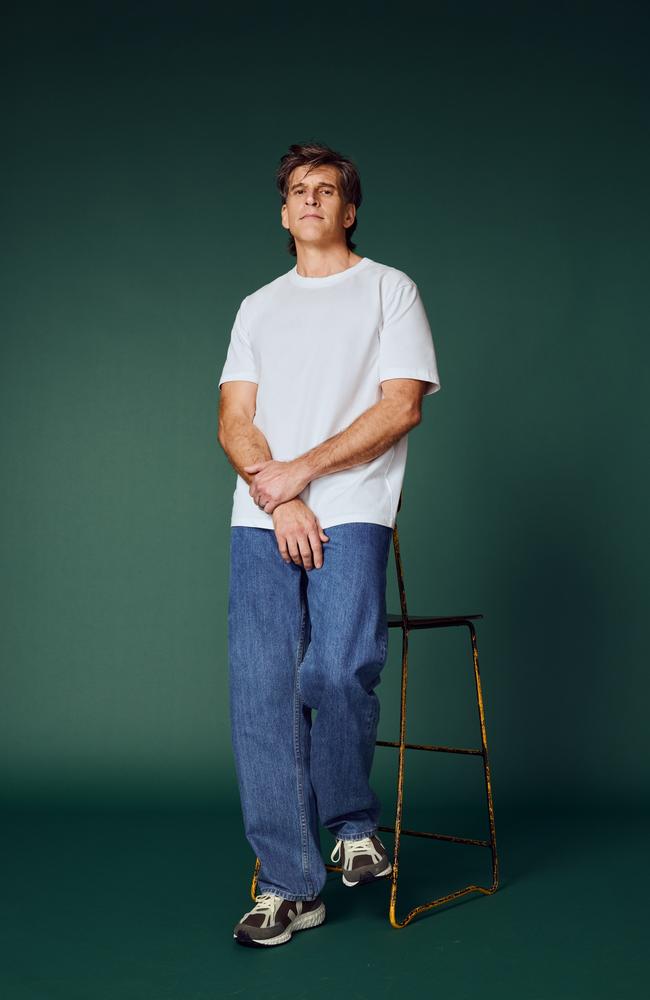
You hosted The Bachelor Australia for 11 seasons, since its inception in 2013. In terms of gender politics, do you think the format was a bit sexist going in, and do you think it evolved over the years?
Anything that’s on television – as much as we probably don’t want to admit it, even the really grubby ones that people watch for schadenfreude purposes – it reflects who we are as a community. And over the time those shows exist, that changes. I’m very grateful that the people involved with the show, we would speak quite a bit about the little tweaks we [could] make with the format year on year. TV formats are weird because it’s a franchise model … so they’re protective of those franchises. It’s a lot of work to shift them around. You can make as many adjustments as you can to make sure it’s culturally relevant. In the American version, when you come close to the end, they stay overnight with each other. But Australian audiences? Much more prudish. We like to think we’re not, but we are. When you see the way the Australian public frame the women who accept these invitations … that’s something for us as a community to look at. You mentioned the words “sexist” and “gender politics” – I think that’s a reflection of where we were as a community in 2013, and it begins a conversation that we need to have.
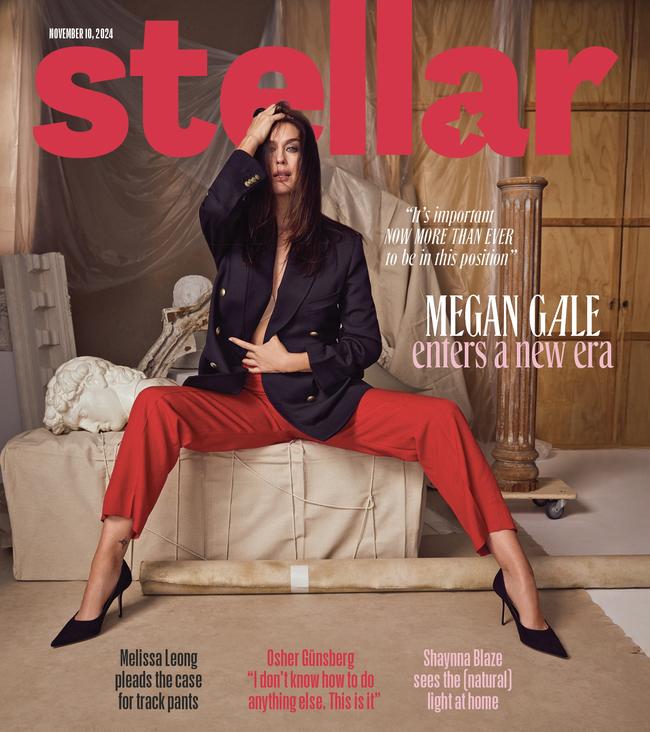
In your new documentary on SBS, Osher Günsberg: A World Of Pain, you meet people affected by chronic pain. Your own pain journey arose from hip replacement surgery in 2020, which developed into a chronic pain condition. What can you tell us about that?
I’ve been through some pretty gnarly stuff. I got really lucky in my life, and with my career. I got really lucky with Audrey … and I got osteoarthritis in my 30s. I heard the first doctor say, “Your hip is cooked. You’ll need to stop running.” At the time, I was running 10km every
day – that’s just what I did. And I’m like, “Oh yeah, OK” [snorts dismissively] and I kept running and kept hurting. I went to see another doctor to get another MRI. I see another specialist; same thing: “You need a hip replacement.” By the time I get to the fourth doctor, I’m like, OK, maybe I do need to stop running because this isn’t stopping hurting and it’s really bad. And look, every surgery has got risk. They’re nobody’s fault. They just happen. But there was a complication with my first surgery, and we couldn’t figure it out for a long time. Just the pain was getting worse and worse. The pain I was experiencing is very noisy in your head, dealing with this all the time and your window of tolerance for dealing with any other kind of frustration starts to diminish to almost nothing. I aged significantly.
Listen to Osher Günsberg on the new episode of Something To Talk About:
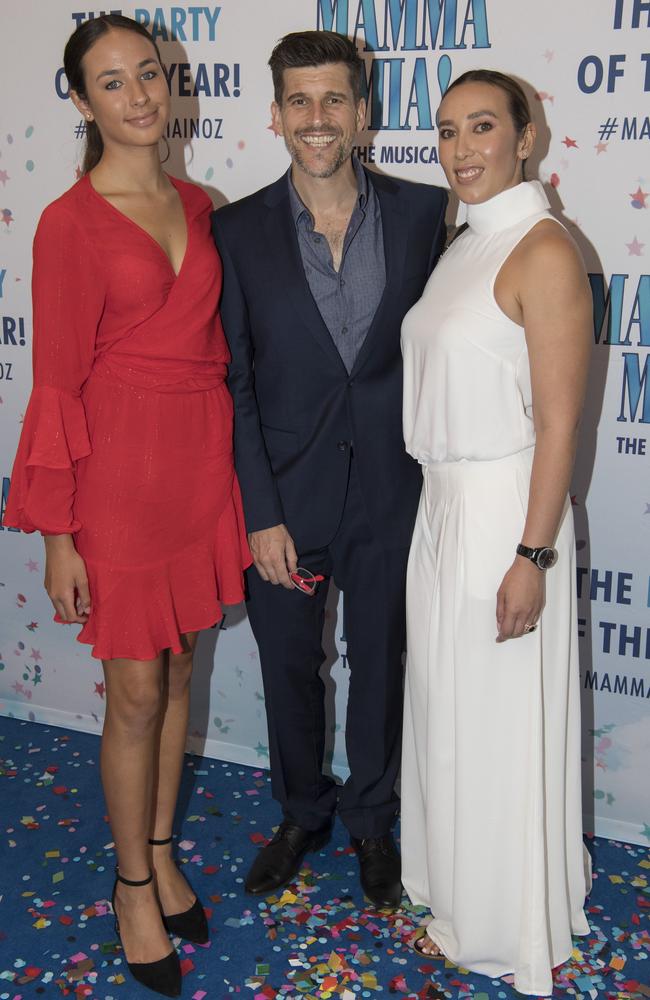
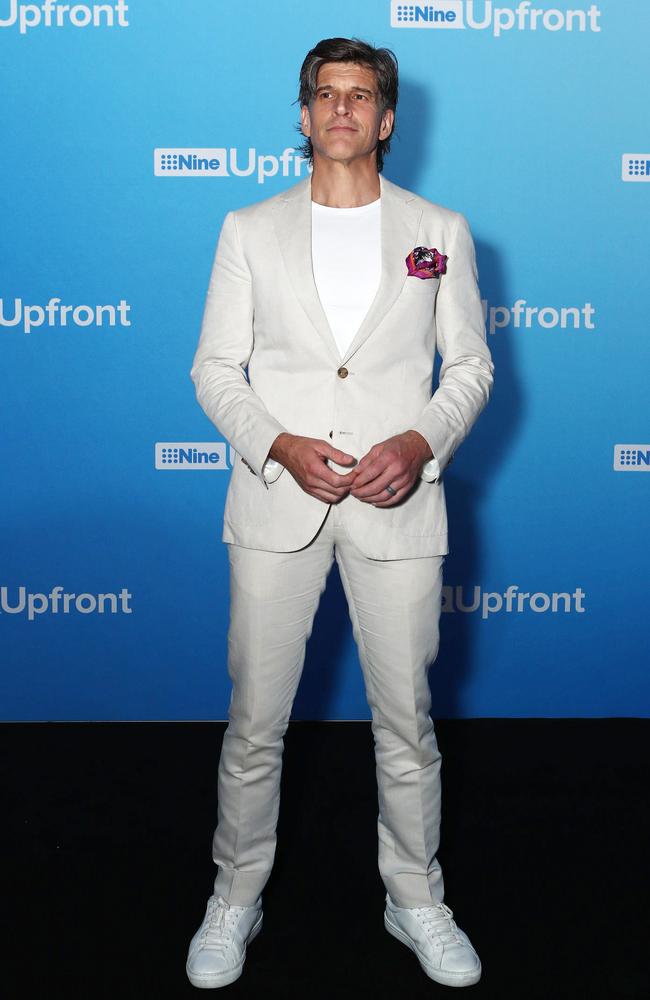
The pain lines got etched into my face. Audrey was like, “My parents are coming down for the weekend, can you get the sheets and put them on the bed?” I’m like, “Yeah, all right.” But because I’ve got that on my face and I’m dealing with the pain in my body, it comes out tinged with this antagonism that’s not there, but it is. It’s coming from a different place, but they don’t know that. And then you’re off. It became fairly clear that my relationship isn’t going to survive this … I went to go see this guy, and he explained about amplification that can happen with pain signals and sensitisation, which can happen with benign signals. And because I’ve been in pain for so long, [the] brain starts to do funky things with a regular sensation. What feels like a normal sensation, your brain sees as a massive danger signal. And then I get these massive spikes of agony caused by my wife trying to cuddle me. Flinching away from a cuddle isn’t good for your relationship, but it hurt. I ended up going to see a pain psychologist who is amazing. She taught me so much about how to identify the difference between pain signals that were actually caused by what was going on physically with me and pain signals that were being created as an amplified kind of response to what was going on in my body.
How are you now?
I ended up having three surgeries and it’s just over two years since the third one. There is a sensation in my body as I speak to you. Is it discomfort? If I fixated on it, it would be pain. But it’s something I’m OK with. I’ve had all the scans, I’ve seen all the doctors. I’m still doing rehab. It was a long time that I was declining. It was a long hike in, a long hike out. I’m still in discomfort right now, sitting talking to you, but it’s OK because my ability to change my relationship with it is the thing I really worked on. And that’s amazing. Not everybody gets to do that.
Listen to Osher Günsberg on the new episode of Something To Talk About:
You’ve been hosting your podcast Better Than Yesterday since 2013, but will we
see you in another TV hosting role soon?
Look, I don’t know. I’m very busy. I signed a two-book deal. The next one is due really soon. I’m working on it with an illustrator so the workflow is somewhat complicated, but it’s good. The next one is due early next year. So I’m very busy. But look, you know what? If there’s a compelling commercial offer, I’m willing to entertain it.
Osher Günsberg: A World Of Pain will premiere at 8.30pm on November 21 on SBS and SBS On Demand.
For more from Stellar and the podcast, Something To Talk About, click here. See the full shoot and interview with Osher in the latest issue of Stellar, out on Sunday via The Sunday Telegraph (NSW), Sunday Herald Sun (VIC), The Sunday Mail (QLD) and Sunday Mail (SA).




